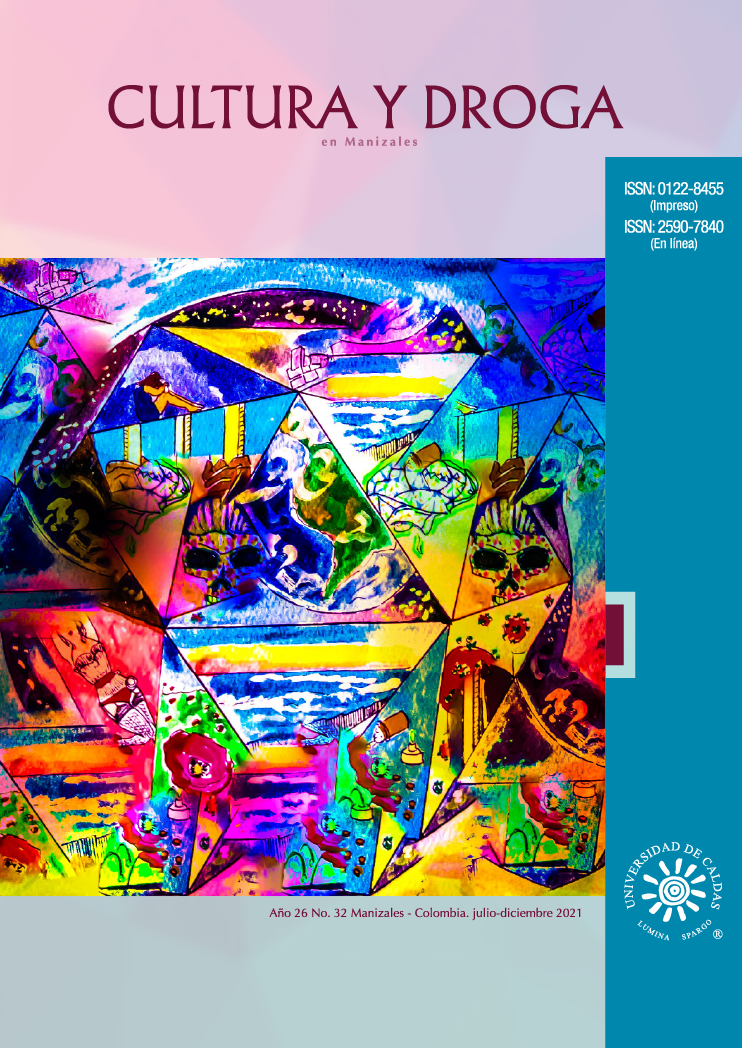Authors
Abstract
Today it can be observed how many of the daily human activities have been transferred from the material world to the digital world and with them the data they generate. Among these new digital relationships are commercial interactions, new labor relationships derived from the increase in remote virtual work and new forms of social and coexistence relationships facilitated by a wide range of technologies, including social networks such as Facebook, Twitter and Instagram. Every time there is access to more and better technology at the service of society, States and private organizations can benefit from this new paradigm when it comes to meeting their social objectives. This is an era in which the emphasis shifted from data generation to
data processing in large volumes. Among the different tools that generate unsolicited online data and for the analysis of this document, the Twitter platform stands out, a social network for free use of bidirectional communication that has been the center of different political exercises around the world, used by many politicians from the West and characterized by having a massive data query interface suitable for centers that seek social analysis.
This document aims at demonstrating, from two practical examples (Word Cloud analysis and sentiment analysis), how the use of the Application Programming Interface (API) of Twitter can provide useful information to improve decision-making in public policies, applicable to specific issues that are difficult to approach, such as the use of psychoactive substances in society. The data obtained, duly processed, will allow a better starting context for decision-making that is usually overshadowed by the dynamics of prohibitionism in drug policies.
Keywords
References
Bennett, W. L., & Segerberg, A. (2012). The Logic of Connective Action. Information, Communication & Society, 15(5), 739-768. http://doi.org/10.1080/1369118X.2012.670661
Bracho, T. (2010). Políticas basadas en evidencia. La política pública como acción informada y objeto de investigación. En CIDE Problemas, decisiones y soluciones. Enfoques de política pública. CIDE.
Canal Red Más. (2019). Polémica de Petro, tras asegurar que el azúcar es más peligrosa que la cocaína. http://www.redmas.com.co/colombia/polemica-de-petro-tras-asegurarque-la-azucar-es-mas-peligrosa-que-la-cocaina/
Consorcio Internacional sobre Políticas de Drogas. (2012). Guía sobre políticas de drogas. http://www.cicad.oas.org/fortalecimiento_institucional/planesnacionales/docs/guia_politicas_drogas_spa.pdf
Décary-Hétu, D., & Aldridge, J. (2015). Sifting through the net: Monitoring of online offenders by researchers. https://www.researchgate.net/publication/312446591_Sifting_through_the_net_Monitoring_of_online_offenders_by_researchers
Enghoff, O. & Aldridge J. (2019) The value of unsolicited online data in drug policy research. International Journal of Drug Policy. https://doi.org/10.1016/j.drugpo.2019.01.023
Hammond, J., Keeney, R. & Raiffa, H. (2000). Decisiones inteligentes. Ediciones Gestión 2000.
Mayer-Schonberger, V. & Cukier, K. (2013). Big Data. La revolución de los datos masivos. Turner Publicaciones.
Miller, P. G., & Sonderlund, A. L. (2010). Using the internet to research hidden populations of illicit drug users: A review. Addiction, 105(9), 1557-1567. https://doi.org/10.1111/j.1360-0443.2010.02992.x.
Mozilla Foundation. (2019). ¿Qué son las APIs? https://developer.mozilla.org/es/docs/Learn/JavaScript/Client-side_web_APIs/Introducci%C3%B3n
Noticias Canal RCN. (2019). Corte Constitucional tumba prohibición de consumo de droga y alcohol en el espacio público. https://noticias.canalrcn.com/nacional-pais/corteconstitucional-tumba-prohibicion-consumo-droga-y-alcohol-el-espacio-publico
Pérez, N. & Quintana, P. (2003). Principales enfoques y estrategias metodológicas empleados en la investigación del consumo de drogas: la experiencia en México. Revista Cubana de Medicina General Integral. 19(2). http://scielo.sld.cu/scielo.php?script=sci_arttext&pid=S0864-21252003000200012&lng=es&nrm=iso
Peña, E & Fontes, C. (2019). Piscina de textos de tweets. Repositorio Github. https://github.com/enpepolicy/DrugPolicyTwitterMonitor/blob/master/resultados/procesado/consolidadoNativoYQuote.txt
Sande, J. C. (2018). Análisis de Sentimientos en Twitter. Universidad Oberta de Catalunya. http://openaccess.uoc.edu/webapps/o2/bitstream/10609/81435/6/jsobrinosTFM0618memoria.pdf
Subirats, J. & Dente, B. (2014). Decisiones públicas. Análisis y estudio de los procesos de decisión en políticas públicas. Ariel.
Twitter Inc. (2019). Docs. https://developer.twitter.com/en/docs

 PDF (Español)
PDF (Español)
 FLIP
FLIP























